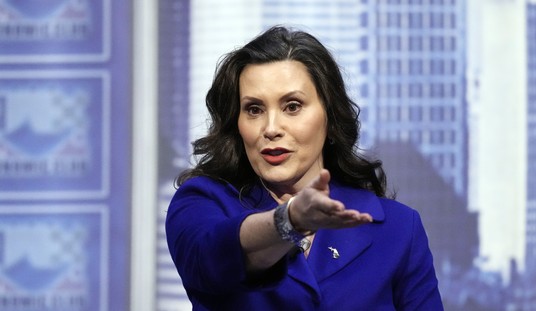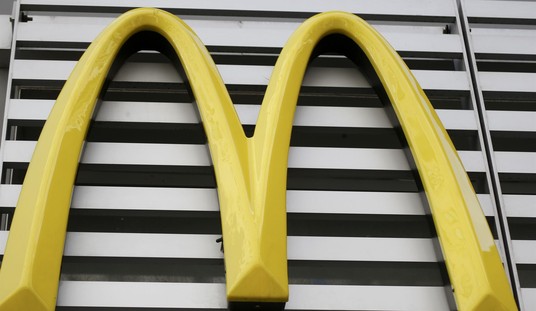Yesterday, Andrew C. McCarthy of National Review published a piece about Trump and Russia titled Collusion and the Trump Dossier. The piece represents a fairly marked shift in his opinions regarding the legitimacy of Robert Mueller’s probe — and the potential validity of the allegations of the infamous Trump dossier compiled by British ex-spook Christopher Steele.
McCarthy focuses on FBI and DoJ stonewalling of the Congressional investigation into Russia, to suggest that maybe there is something to some of the allegations contained in the dossier after all. The deck headline sums up McCarthy’s new position: “If the Trump dossier is a tissue of lies, why are the Justice Department and FBI, now controlled by Trump appointees, concealing information about it?” Here’s how the piece opens:
It is an article of faith among the president’s most ardent supporters: The Trump dossier is a completely discredited piece of garbage. Hence, its relevance is limited to one matter and one matter alone: The dossier’s suspected use by the Obama administration (specifically, the Justice Department and the FBI) as a pretext to spy on the opposition party’s presidential campaign — a ruse that included cribbing the dossier’s sensational allegations in secret court applications for wiretap warrants.
It appears that this Trumpist tenet is going to be tested. The dossier that did so much to fuel the collusion controversy is assuming center stage once more.
This is quite a shift in McCarthy’s attitude about the investigation in general, and the dossier in particular.
On March 3, 2017, McCarthy wrote a piece titled A Special Prosecutor . . . For What? The deck headline pronounced: “There is no crime to probe in the matter of the Trump campaign’s contact with Russians.” The piece opened by declaring — with no ifs, ands, or buts — that there was absolutely nothing to investigate regarding Trump and Russia:
So, Attorney General Jeff Sessions has recused himself. Great!
Just one question: From what?
. . . .
[T]here is no crime here except the ones committed by Russian intelligence.
In June of this year, McCarthy’s tone on the investigation as a whole was, if anything, more decisively contemptuous. The entire narrative underlying the investigation was, McCarthy proclaimed, a fraud:
The “collusion” narrative was a fraud, plain and simple. We know that now. Hopefully, it won’t take another six months to grasp a second plain and simple truth: Collusion’s successor, the “obstruction” narrative, is a perversion.
In his June piece, McCarthy claimed that Trump has done nothing to obstruct or interfere with the Russia investigation:
But neither did Trump care enough about the Russia investigation to obstruct it. What he cared about, obsessively, was the false suggestion that he was complicit in whatever the Kremlin had done. . . . The Russia investigation, to the extent it seeks to understand and guard against Putin’s treachery, is a search for the truth. Trump has not interfered with it; indeed, Comey’s testimony indicates that he encouraged it — acknowledging it would be good to find out if his “satellites” had done something wrong.
But yesterday, McCarthy provided a very different view of the level of cooperation shown by the Trump administration — at least when it comes to the investigation by Congress. Now, McCarthy says, it appears that they are “thwarting Congress’s efforts” and “impeding Congressional probes.” The reason? Maybe, McCarthy says, the reason is that certain claims in the famous dossier have been substantiated:
As we’ve previously noted, Mueller is clearly squeezing Manafort. The investigation seeks any information Manafort has regarding a cooperative venture between the Trump campaign and the Putin regime: Russian assistance in the campaign in exchange for Trump policy concessions on Russia. Mueller obviously sees it as his task to determine whether such a venture (a) truly did exist, (b) was spearheaded by Manafort, and (c) was known to Trump. Patently, if Mueller’s investigators are talking (or at least have talked) to Steele, that turns up the heat on Manafort. That brings us to the second reason to focus on the dossier — the one I find most disturbing. The FBI and Justice Department are thwarting Congress’s efforts to get to the bottom of it.
. . . . [I]f the Trump Dossier really is a completely discredited piece of garbage, who on earth has a greater incentive than Trump to expose it? Why are the Trump Justice Department and FBI impeding congressional probes? If the information is false, you would think they couldn’t shovel it out fast enough.
But what if the information — or at least some of it — were true? Under those circumstances, the White House would make a political calculation: Trump would be better served by simply continuing to complain about a purported witch-hunt and politicized abuses of surveillance authority; there would be too much downside risk in directing the Justice Department and FBI to disclose all relevant information to Congress forthwith.
If at least some of the dossier’s more important allegations had been corroborated, we would also expect the Justice Department and the FBI to refuse to cooperate with anyone other than Mueller. That would not be due to corruption — quite the opposite. It would owe to the ongoing investigation: Disclosing what the FBI has done to corroborate Steele would expose to danger (particularly of Russian retaliation) the witnesses who have provided information.
In other words, if some of the dossier had been substantiated by investigators, things would look . . . just like they look at the moment.
The talk about the possibility that the famous dossier could have some truth to it is quite a switch in position. Remember in March, when McCarthy thought that the dossier about Donald Trump was entirely “goofy and discredited”?
Ironically, the overblown controversy surrounding Sessions this week was caused primarily by his haste to deny, forcefully, that he had any participation, as a Trump campaign surrogate, in communications with the Russian government regarding the 2016 election. This was the upshot of his response to a loaded question from Democratic senator Al Franken, who was relying on salacious allegations in a goofy and discredited dossier compiled for Trump opponents. Several media outlets had had access to the dossier for months but had not published it, despite their loathing of Trump, because its outlandish claims could not be substantiated. In any event, Sessions, like Flynn, made the error of mis-describing his contacts with the Russian ambassador. That is unfortunate, but there was nothing remotely criminal or inappropriate about the contacts themselves.
So the dossier was “goofy and discredited” in its entirety, with “outlandish claims” that “could not be substantiated.” That position — that the dossier is “a completely discredited piece of garbage” — is now described in McCarthy’s latest piece (as we saw above) as a “Trumpist tenet” that is going to be tested.
Indeed, McCarthy spends a lot of time in his latest piece arguing that there might me something to the allegations of the dossier:
Something is not right here. If we’re ever going to figure it out, the dossier is the roadmap.
So, is the article of faith true? If the Trump dossier is just a tissue of lies, why are the Justice Department and FBI, now controlled by Trump appointees, concealing information about it rather than anxiously volunteering disclosure? If I had to bet on it, I’d wager that the dossier is like many reports compiled by investigative bodies whose motives are dubious and whose sources are of varying levels of credibility — similar to what you get after investigations by politicized congressional committees, law-enforcement agents who are less than first-rate, or private detectives who, lacking subpoena power, often rely on multiple hearsay. That is, I think the dossier will turn out to be a mixed bag of the true, the false, and the shades of gray in between.
That’s a pretty far cry from “goofy and discredited.” And McCarthy goes on:
Prior to his dossier work, Steele seems to have enjoyed a good reputation with the American intelligence and law-enforcement agents with whom he had worked. Some of his dossier information appears to come from well-placed sources; some of it is second- and third-hand, and speculative at that. On the face of things, most of Steele’s sources are anonymous, another reason his claims have been given the back of the hand by Trump supporters. But from an investigator’s standpoint, the sources are identifiable: If Steele cooperated with the FBI (and in some instances, even if he didn’t), the Bureau could pretty easily figure out who the sources are, follow the leads, and determine whether the dossier is a complete fabrication.
The FBI plainly did not dismiss the dossier out of hand. If it used some of the dossier’s information in a FISA-court surveillance application, that would only be problematic if agents failed to verify that particular information before seeking the warrant. That would be highly irregular. For now, we don’t know what happened.
There are hundreds of claims in the dossier. Some of them seem outlandish — so much so that, at Forbes, Russia expert Paul Roderick Gregory debunks the dossier emphatically. Nonetheless, to my knowledge, the only claim that has been discredited with persuasive force is the assertion that Trump’s long-time lawyer, Michael Cohen, had secret meetings in Prague with Russian officials. Cohen denies having ever been to Prague, and he maintains that his passport shows no visits there — a claim that wouldn’t necessarily discount travel to the Czech Republic but could have been refuted easily if false. If the Bureau concluded that the dossier’s claim about Cohen is wrong, one could infer that the inaccuracy is reflective of Steele’s overall reporting — in which case, Trump and his associates have nothing to be concerned about.
On the other hand, it could be that some of the dossier’s information is wrong but some is accurate. On that score, Business Insider’s Natasha Bertrand has been carefully comparing allegations in the dossier with actual events and has found a good deal of alignment. The factual corroboration is circumstantial — no smoking-gun proof of campaign collusion between Trump associates and Putin’s regime. Much of it is nonetheless disturbing — plainly in the category of suspicious activity investigators would deem worthy of investigation.
All we really ever heard about this dossier before was “It said Trump peed on a bed! It is ridiculous!” And, to be honest, that particular salacious detail did seem ridiculous. And still does. But these days, McCarthy is loath to call even those allegations “discredited” — preferring the term “unsubstantiated”:
Most of the press coverage about the dossier has focused on salacious sexual allegations about Trump. These are usually dismissed by the Trump camp as completely discredited. In reality, we can say only that they are unsubstantiated. That’s saliently different.
But it’s not just the Trump camp that has described the dossier as “discredited.” As I already noted, McCarthy himself described the entire dossier as “goofy and discredited” in March. That characterization is also “saliently different” from McCarthy’s description of the dossier today. I’m not really sure which claims McCarthy suddenly finds non-goofy and non-discredited — but if you compare the tone of McCarthy October 2017 with that of McCarthy March or June 2017 . . . well, it’s quite a different take on events, isn’t it? McCarthy ends his latest piece with this:
None of this would prove collusion between Trump’s campaign and the Kremlin. It does suggest, however, that there were good reasons to conduct an investigation.
That, too, is a far cry from the March and June claims of the entire investigation being premised on a fraud.
I am not accusing McCarthy of hypocrisy, mind you. I do think he was far too dismissive of the investigation right out of the gate — when nobody really knew all the facts, but partisans pretended to know them anyway — but his latest opinions are based on changed circumstances: in particular, the stonewalling by DoJ and the FBI.
I note the change in attitude because I consider McCarthy both very smart, and also someone who is reluctant to leap anti-Trump conclusions out of animus towards the President. He’s also well connected, and a former federal prosecutor of no small degree of skill and renown, who understands how this stuff works.
The fact that he is starting to wonder whether there is more fire behind all this smoke — while it doesn’t prove anything — is interesting, and worthy of note.













Join the conversation as a VIP Member